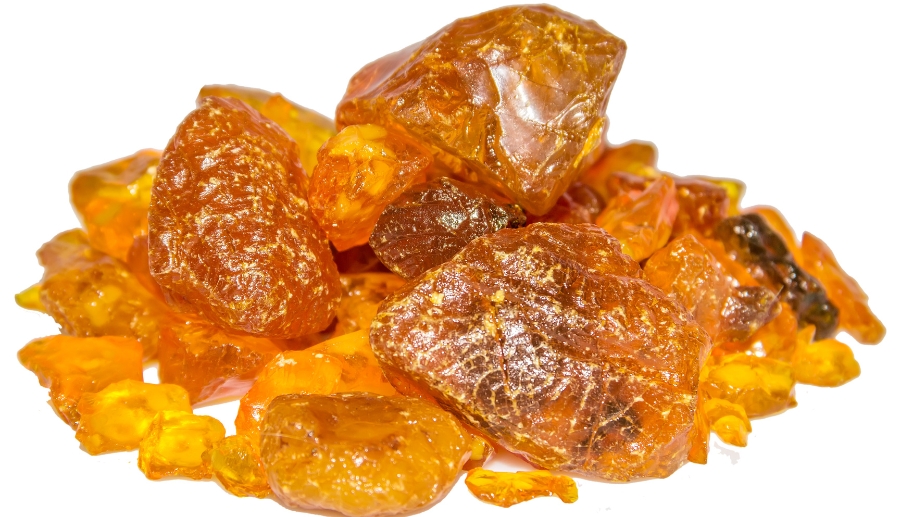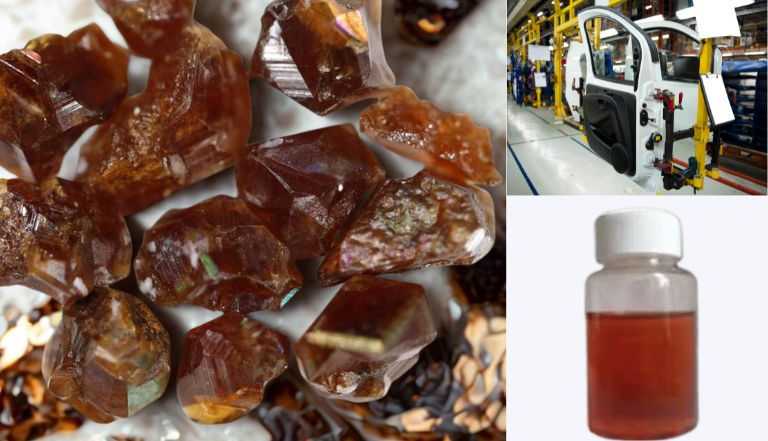
In industries across Brazil and Mexico, rosin modified phenolic resins are becoming increasingly significant due to their ability to offer enhanced performance in various applications. These resins are used in numerous sectors, including automotive, construction and coatings, due to their high adhesion, thermal stability and chemical resistance. Both countries are benefiting from these modified resins, as they contribute to improving product durability and quality across manufacturing processes. This article provides an overview of the use of these resins in Brazil and Mexico, exploring key sectors, challenges and opportunities.

Rosin Modified Phenolic Resins in Brazil’s Industrial Landscape
Brazil, with its diversified manufacturing base, has seen a rise in demand for modified phenolic resins, particularly in automotive manufacturing, construction and adhesives.
Automotive Sector
The Brazilian automotive industry is one of the largest in Latin America and manufacturers rely on high-performance materials for coatings and adhesives. Rosin based phenolic resins are widely used in vehicle manufacturing, particularly for providing durable coatings and effective bonding agents. These resins help ensure that automotive components remain resistant to wear, heat and environmental factors, contributing to both the functionality and aesthetics of the vehicles.
In vehicle coatings, resins are chosen for their ability to provide a high-quality finish and offer protection against harsh elements. This makes them essential in the automotive coatings industry, where performance and durability are key requirements.
Construction and Coatings
In Brazil’s construction sector, modified phenolic resins are used in coatings for infrastructure projects, flooring materials and insulation. Their chemical resistance and strength under high temperatures make them suitable for applications exposed to outdoor conditions or physical wear.
In addition, rosin modified varnish resins are employed in surface coatings, such as for wood, ensuring durability and resistance to weathering. Their ability to form a tough, protective layer makes them a popular choice in the construction of long-lasting buildings and other structures.
Packaging and Adhesives
Brazil’s packaging and adhesives sectors also rely on phenolic resin adhesives, which are used in the production of laminates and packaging materials. The adhesive properties and flexibility of these resins make them an ideal choice for industries that require durable, long-lasting bonding solutions.
As Brazil’s packaging industry continues to grow, particularly in food, beverage and consumer goods, the demand for these resins is expected to increase. This trend is supported by the need for packaging that can withstand both mechanical stress and environmental factors, ensuring the safety and integrity of the products.
Rosin Modified Phenolic Resins in Mexico’s Industrial Growth
In Mexico, industries such as automotive, electronics and construction are driving the demand for rosin phenolic resins. As Mexico’s manufacturing sector expands, the role of these resins in improving product quality and performance becomes even more significant.
Automotive Industry
Mexico’s automotive industry is a major contributor to its economy, with many global automotive manufacturers operating within the country. Rosin modified phenolic resins are used extensively in vehicle manufacturing, particularly in adhesive applications for interior parts, coatings and components that require high durability and resistance to heat and chemical exposure.
As Mexican manufacturers continue to meet the growing demand for both domestic and international markets, phenolic resin with rosin becomes essential in ensuring high standards for product performance and longevity in the automotive sector. (Doubt)

Construction and Coatings
The construction industry in Mexico is also seeing an increased use of rosin phenolic resins for various applications. These include coatings for industrial floors, walls and equipment, as well as adhesives for the bonding of construction materials. The resins provide excellent resistance to wear, which is critical in construction materials exposed to heavy traffic, moisture and chemicals.
Furthermore, rosin modified varnish resins are applied in wood treatment, enhancing both appearance and durability. These applications are growing in line with Mexico’s booming construction industry, particularly in residential and commercial sectors.
Electronics and Packaging
Mexico’s electronics sector is another area where rosin modified phenolic resins are being increasingly used. Rosin modified resins provide excellent performance in the production of circuit boards and other electronic components, offering the necessary heat resistance and durability for products used in demanding environments.
In the packaging industry, phenolic resin adhesives are essential for producing strong, reliable packaging materials that require long-lasting adhesion and protection. With the growth of packaging demand, particularly in the consumer goods and food sectors, the need for these resins continues to rise.
Challenges and Opportunities in Brazil and Mexico’s Resin Markets
Challenges
Both Brazil and Mexico face similar challenges in their use of rosin modified phenolic resins. A primary concern is the reliance on imports for certain resin types, especially those with specialized formulations required for high-end applications. While both countries have a strong manufacturing base, the supply chain for advanced resins often depends on imports, which can affect pricing and availability.
Moreover, there are challenges related to the high production costs in both countries, as the raw materials required for resin synthesis can be expensive. While both Brazil and Mexico are seeing growth in their manufacturing sectors, the need for more efficient and cost-effective production processes remains.
Opportunities
Despite these challenges, both Brazil and Mexico present ample opportunities for growth in the rosin modified phenolic resin markets. In Brazil, the automotive sector’s growing demand for durable coatings and adhesives, as well as the increasing demand from the construction industry, provides a solid foundation for expanding the market for phenolic resins.
Similarly, in Mexico, the rapid growth of the automotive industry and the expansion of the construction and electronics sectors provide opportunities to play a more significant role. As these industries continue to develop, the need for high-quality resins for bonding, coatings and adhesives will drive future demand.
Both countries have the potential to increase local production of rosin modified phenolic resins, reducing reliance on imports and enhancing their competitive edge in the global market. With ongoing technological advancements, both Brazil and Mexico can continue to strengthen their domestic resin production and cater to their growing industrial needs.

Conclusion:
The use of rosin modified phenolic resins in Brazil and Mexico is crucial in driving industrial growth across various sectors, including automotive, construction, electronics and packaging. As these industries continue to expand, that offer durability, strong adhesion and resistance to harsh conditions will rise. Both countries will continue to rely on these resins to meet the growing demand for high-performance products.
While challenges such as supply chain limitations and production costs persist, there are significant opportunities for growth. Both Brazil and Mexico can further develop their domestic production capabilities to meet the increasing demand for rosin phenolic resins, ultimately contributing to more efficient and sustainable industrial processes. With the right investments in technology and local manufacturing, rosin modified phenolic resins will continue to play an integral role in the industrial sectors of both countries.
- Role of Rosin Modified Phenolic Resins in Brazil and Mexico’s Industries
- Phenolic Resin in South Africa and Egypt: A Comparative Market and Supply Chain Analysis
- Titanium Acetylacetonate in Asian Catalysis: Driving Innovations in Petrochemicals and Green Chemistry
- How Phenolic Resins are Driving Innovations in High-Gloss Finishes in Brazil?
- Why Reactive Polyamide Resins are Revolutionizing Epoxy Adhesives in the European Construction Sector?



